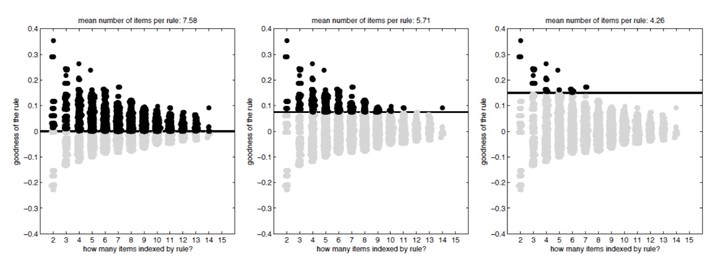Hypothesis generation, the positive test strategy, and sparse categories

Abstract
We consider the situation in which a reasoner must induce the rule that explains an observed set of data but the hypothesis space of possible rules is not explicitly enumerated or identified. The first part of the paper demonstrates that as long as hypotheses are sparse (i.e., index less than half of the possible entities in the domain) then a positive test strategy is near-optimal. The second part of this paper then demonstrates that a preference for sparse hypotheses (a sparsity bias) emerges as a natural consequence of the family resemblance principle; that is, it arises from the requirement that good rules index entities that are more similar to one another than they are to entities that do not satisfy the rule.
Type
Publication
Psychological Review 118: 120-134